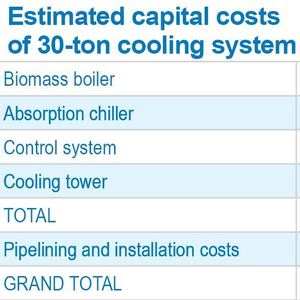AURI publishes feasibility guide on biomass cooling




September 9, 2016
BY Erin Krueger
The Agricultural Utilization Research Institute has announced the availability of a new feasibility study that shows biomass cooling can be a viable option for small-to-medium sized commercial, industrial and residential units.
The study explains that increasing temperatures—particularly in the Midwest—are expected to lead to large energy cost increases due to expenditures associated with switching from heating demand to cooling demand over the next five to 25 years. While biomass cooling technologies currently exist, the study indicates they are currently deployed only on a large commercial scale. However, biomass cooling may be an attractive option for smaller-scale installations. The study notes current economic data “substantiates biomass cooling is a viable option and worth consideration, particularly if constructing a new building or retrofitting a current system where piping is in place.”
Advertisement
Advertisement
The report concludes that biomass offers a competitive, and often lowercost alternative to traditional energy sources. When compared to conventional electricity, the use of wood pellets was found to result in a cost savings of $63.22 per month, with a cost savings of $64.12 per month when compared to propane. Other agricultural biomass sources, such as corn cobs, could provide similar cost savings.
Advertisement
Advertisement
Upcoming Events





